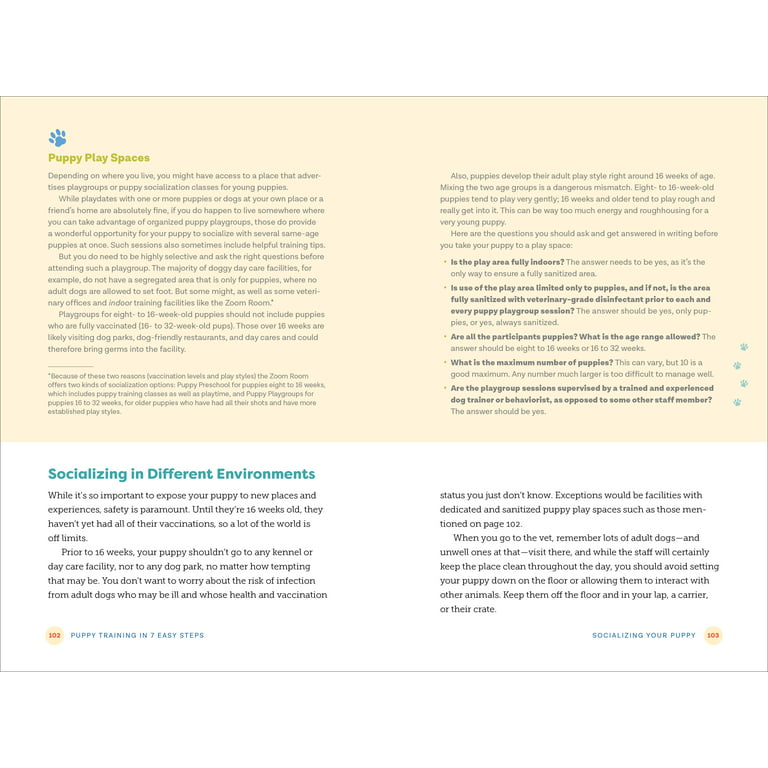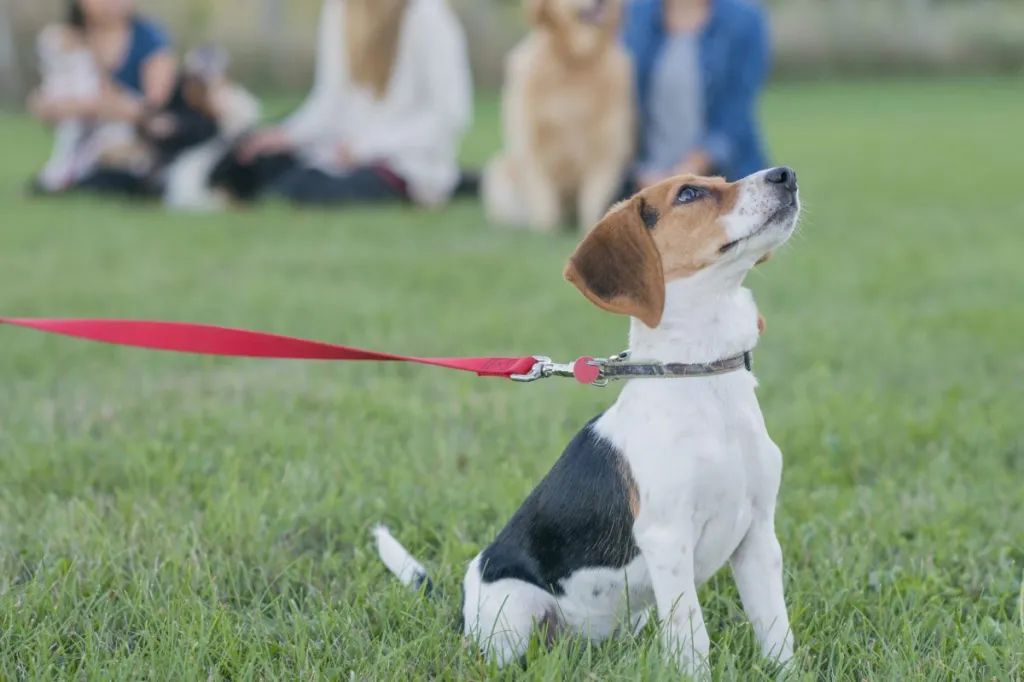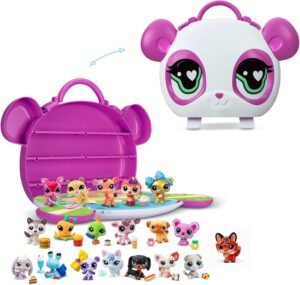Puppy training classes are essential for teaching your new dog basic obedience and socialization skills. In these classes, professional trainers provide guidance and instruction to help your puppy learn commands, leash manners, and proper behavior around other dogs and people.
Attending puppy training classes can greatly improve your dog’s behavior and temperament, making them a well-behaved and happy member of your family. Plus, it offers a valuable opportunity for you and your puppy to bond and establish a foundation of trust and communication.
So, if you’re a new puppy owner, enrolling your furry friend in a puppy training class should be at the top of your to-do list.
The Benefits Of Puppy Training Classes
Training is an essential part of raising a happy and well-behaved puppy. While you can certainly attempt to train your furry friend at home, enrolling in puppy training classes offers a multitude of benefits that can make a significant difference in your dog’s development. In this article, we will explore some of the key advantages of puppy training classes.
Socialization
Proper socialization is crucial for puppies to become well-adjusted and friendly adult dogs. Puppy training classes provide a controlled environment where your pup can interact with other dogs and people. These interactions help your puppy develop confidence, learn proper doggy manners, and adjust to various situations.
The benefits of socialization in puppy training classes are numerous:
- Opportunities for your puppy to learn how to politely greet and play with other dogs, promoting positive social interactions.
- Exposure to different breeds, sizes, ages, and temperaments of dogs, teaching your puppy to be comfortable and accepting of diversity.
- Interaction with trainers and other owners, boosting your puppy’s obedience and responsiveness to commands given by unfamiliar people.
By attending these classes, you can help your puppy become a well-mannered and sociable companion.
Behavioral Training
Puppy training classes provide a structured and specialized approach to behavioral training. Trainers in these classes are experienced professionals who can guide you through the process of teaching your pup basic commands and correcting undesirable behaviors.
Here are some benefits of behavioral training in puppy training classes:
- Consistent and effective training techniques that target specific behaviors such as biting, chewing, jumping, and barking.
- Professional guidance on positive reinforcement methods, promoting a training experience that is enjoyable for both you and your puppy.
- Opportunities for you to learn and practice effective training techniques, ensuring you can continue the training process at home.
By attending puppy training classes, you can address behavioral issues early on, fostering a well-behaved and obedient pet.
Bonding With Your Puppy
One of the most significant benefits of attending puppy training classes is the opportunity to bond with your new furry friend. Training together helps build trust, communication, and a strong relationship between you and your puppy.
Some benefits of bonding with your puppy in training classes include:
- Shared experiences and activities that create a positive association with each other, strengthening your emotional connection.
- Learning to interpret your puppy’s body language and signals, enhancing your ability to understand their needs and desires.
- Establishing a foundation of obedience and cooperation, making future training sessions and everyday life situations more enjoyable and harmonious.
Remember, the bond you form with your puppy during these early stages will lay the groundwork for a lifelong friendship.

Credit: www.walmart.com
What To Expect In Puppy Training Classes
Discover all you need to know about puppy training classes and what to expect from them. From basic obedience to socialization skills, these classes provide a comprehensive learning experience for your furry friend’s development. Gain valuable insights and guidance in a supportive environment tailored to meet your puppy’s needs.
Attending puppy training classes is a crucial step in ensuring a well-behaved and obedient dog. These classes provide a structured environment for your furry friend to learn and grow. Let’s explore what you can expect in these invaluable training sessions.
Basic Commands
During puppy training classes, your little bundle of joy will learn essential basic commands that lay the foundation for good behavior. Trainers will focus on teaching commands such as “sit,” “stay,” “down,” and “come.” These commands are fundamental for establishing control and ensuring your puppy’s safety in various situations. Learning these basic commands will enable your furry friend to become a polite and well-mannered member of your family.
Leash Training
Leash training is an important aspect of puppy training classes. It involves teaching your pup to walk calmly on a leash without pulling or getting overly excited. In these classes, trainers will demonstrate proper leash handling techniques and guide you on how to teach your pup to walk obediently beside you. Effective leash training ensures that daily walks become enjoyable bonding experiences for both of you.
Housebreaking
Housebreaking, or teaching your puppy to eliminate in appropriate areas, is another essential skill covered in puppy training classes. Trainers will provide guidance on establishing a consistent schedule, reading your pup’s body language, and teaching them to use designated areas for potty breaks. By mastering housebreaking, you can avoid accidents in the house and foster a clean and hygienic living environment for both you and your pup.
Positive Reinforcement
In puppy training classes, positive reinforcement techniques are the preferred approach to motivate and teach your furry companion. Trainers will encourage you to reward your pup’s good behavior with treats, praise, and playtime. Positive reinforcement helps create a strong bond between you and your pup while enhancing their learning experience. It also ensures that your puppy associates training with positive experiences, making them eager to participate and learn.
Attending puppy training classes is an investment in your dog’s future. By helping your pup develop essential skills and behaviors, these classes set the stage for a balanced, well-behaved companion. So, enroll your furry friend in puppy training classes today and embark on an adventure of growth and learning together!
Choosing The Right Puppy Training Class
When it comes to raising a well-behaved and obedient puppy, enrolling in a puppy training class is an excellent decision. Puppy training classes provide a structured environment where you can learn how to teach your furry friend essential skills and behaviors. However, with so many options available, it’s crucial to choose the right class that suits your needs and preferences. Here are a few factors to consider when selecting a puppy training class:
Certified Trainers
One of the key factors in choosing a puppy training class is ensuring that the trainers are certified professionals. Certified trainers have undergone extensive education and training, equipping them with the knowledge and skills necessary to effectively train puppies. Look for classes where trainers hold certifications from reputable organizations such as the Certification Council for Professional Dog Trainers (CCPDT). These certifications guarantee that the trainers follow ethical practices and use humane training methods.
Training Methods
The training methods used in a puppy training class are of utmost importance. It’s essential to find a class that aligns with your training philosophy and values. Make sure to inquire about the methods employed by the trainers before enrolling. Positive reinforcement-based training methods, such as rewarding desired behaviors, are widely considered the most effective and humane approach. Avoid classes that rely heavily on punishment or aversive techniques, as these can cause stress and aggression in puppies.
Class Atmosphere
The atmosphere of the class plays a significant role in your puppy’s learning experience. A positive and supportive environment can greatly enhance the training process. Look for classes where trainers foster a welcoming and encouraging atmosphere. Additionally, observe how the trainers interact with the puppies and their owners during a class session. It’s important to ensure that the trainers are patient, gentle, and approachable, as this promotes a comfortable learning environment for both you and your puppy.
Class Size And Duration
Consider the class size and duration when choosing a puppy training class. Smaller class sizes tend to provide more individual attention and personalized guidance, allowing for a tailored training experience. Aim for classes with a limited number of puppies to ensure that each one receives proper attention. Additionally, the duration of the class should be suitable for you and your puppy’s schedule. Shorter sessions may be preferable for younger puppies with shorter attention spans, while longer classes may be more suitable for older puppies who can handle extended training periods.

Credit: dogtime.com
Preparing For Puppy Training Classes
Puppy training classes are an essential step in ensuring that your furry friend grows up to be a well-behaved and obedient companion. Before you embark on this exciting journey, it’s important to make necessary preparations to set you and your pup up for success. From gathering essential supplies to addressing health considerations, here’s everything you need to know to get ready for puppy training classes.
Essential Supplies
When it comes to attending puppy training classes, having the right supplies can make all the difference.
 |
1. Collar and LeashA sturdy collar and leash are must-haves for any dog owner. Opt for an adjustable collar that comfortably fits and a leash that allows for easy control. 2. TreatsTreats are a valuable tool during training sessions. Make sure to choose small, soft treats that your puppy loves as a positive reinforcement. 3. ClickerA clicker is a handy training tool that helps communicate positive behavior to your puppy. It provides a clear sound marker for the desired action. |
Health Considerations
Your puppy’s health should be a top priority before starting any training classes.
- Vaccinations: Ensure that your puppy is up-to-date on vaccinations recommended by your veterinarian. This will protect your pup from common infections and diseases.
- Health Check-up: Schedule a visit to the vet to ensure your puppy is in good health. The vet can provide guidance on any specific health considerations based on your pup’s breed.
- Parasite Prevention: Protect your puppy from fleas, ticks, and worms by implementing a regular preventive treatment regimen recommended by your vet.
Training Preparations At Home
Setting the stage for puppy training starts at home. Create a conducive environment that promotes learning and facilitates training sessions.
- Puppy-Proof: Remove any hazards or objects that could harm your pup or distract them during training sessions.
- Designated Training Area: Dedicate a specific area in your home for training activities. This creates a focused space where both you and your puppy can concentrate better.
- Routine and Consistency: Establish a consistent routine for meals, bathroom breaks, and training sessions. Dogs thrive on routine, and it will help them grasp training concepts more easily.
Tips For Successful Puppy Training Classes
Discover essential tips for successful puppy training classes and learn everything you need to know about effective training techniques. Gain valuable insights on how to train your puppy, from basic obedience commands to housebreaking and socialization, to ensure a well-behaved and happy furry companion.
Consistency And Patience
Consistency and patience are key factors for successful puppy training classes. Puppies thrive on routine, so it is important to establish a consistent schedule and stick to it. This means feeding your puppy at the same time every day, taking them out for potty breaks at regular intervals, and scheduling training sessions at consistent times. By providing this structure, you create a sense of stability and make it easier for your puppy to learn and retain new information.Positive Reinforcement Techniques
Positive reinforcement is a highly effective technique for training puppies. This method involves rewarding your puppy for desired behaviors, such as sitting, staying, or walking nicely on a leash. Instead of focusing on punishment or scolding when your puppy makes a mistake, emphasize positive reinforcement by offering treats, praise, and affection when they exhibit the desired behavior. This approach not only motivates your puppy to engage in good behaviors but also strengthens the bond between you and your furry friend.Active Participation
Active participation is vital during puppy training classes. This means being fully engaged and involved in the training process. Pay close attention to the instructions given by the trainer and follow them carefully. Stay present and focused on your puppy, providing clear and consistent cues during training exercises. Practice patience and understanding, knowing that puppies learn at their own pace. Celebrate small victories and be patient when your puppy struggles with certain commands or behaviors. Your active participation will greatly enhance the effectiveness of the training classes and ensure that your puppy learns quickly and efficiently. Incorporating these tips into your puppy training classes will set you and your furry friend up for success. Consistency and patience will establish a solid foundation for learning, while positive reinforcement techniques will motivate your puppy to excel. Stay actively involved in the training process, supporting your puppy’s progress every step of the way. With these principles in mind, both you and your pup are ready to embark on an exciting journey of training and bonding together.
Credit: highlandcanine.com
Frequently Asked Questions For Everything You Need To Know About Puppy Training Classes
What Is The Best Age To Start Puppy Training Classes?
The ideal age to start puppy training classes is between 8 and 16 weeks. Early training helps establish good behaviors, socialization, and basic obedience skills. Start as soon as your puppy is old enough to join a class and begin their education.
How Do I Start Basic Puppy Training?
To start basic puppy training, follow these steps: 1. Begin with basic commands like sit, stay, and come. 2. Use positive reinforcement, such as treats or praise, to reward good behavior. 3. Be consistent and patient with your training sessions. 4.
Gradually introduce more advanced commands and socialization exercises. 5. Seek guidance from a professional dog trainer if needed. Happy training!
What Is The First Thing You Should Train Your New Puppy?
The first thing to train your new puppy is basic obedience commands like sit, stay, and come. These commands provide a foundation for future training and help establish you as the leader. Start with short training sessions, use positive reinforcement, and be patient and consistent.
What Do I Need To Know Before Training My Dog?
To effectively train your dog, keep these 5 guidelines in mind: 1. Use concise sentences, limiting them to 20 words. 2. Craft SEO-friendly, unique content that is easy for humans to understand. 3. Write in active voice, avoiding certain phrases to maintain clarity.
4. Ensure your writing passes AI detection and feels natural to humans. 5. Keep your answer within 50 words.
Conclusion
Enrolling your furry friend in puppy training classes is a smart decision that sets the foundation for a well-behaved and happy companion. From basic obedience commands to socialization skills, these classes offer expert guidance and essential tools for both you and your pup.
With a structured environment and professional trainers, your puppy will learn vital behaviors while fostering a strong bond with you. Don’t underestimate the importance of proper training—invest in puppy classes and watch your four-legged friend thrive. Start their journey towards a lifetime of obedience and joy today!








